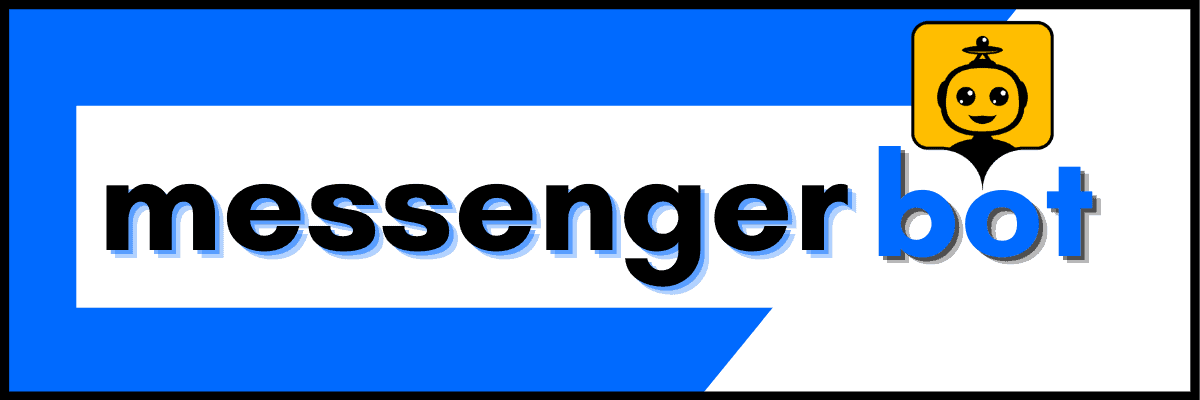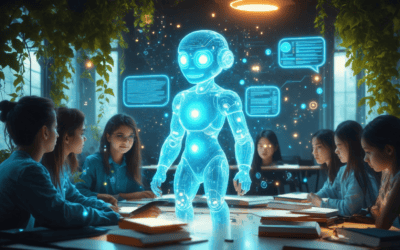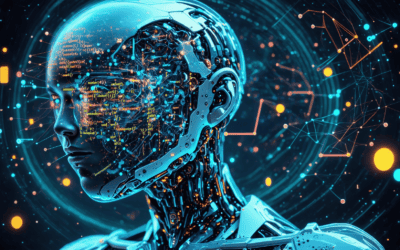Dans le paysage numérique d'aujourd'hui, le chatbot app has emerged as a vital tool for enhancing user interaction and streamlining communication. Whether you’re an Android or iPhone user, understanding the various free chatbot apps available can significantly improve your experience. This article will guide you through the essentials of chatbot applications, including their definitions, functionalities, and the different types of chatbots that exist. We will explore the best free chatbot apps for both platforms, comparing features and user reviews to help you make an informed choice. Additionally, we will delve into the common applications of AI chatbots, their safety, and privacy concerns, ensuring you have a comprehensive understanding of what a application de chatbot can do for you. By the end of this article, you’ll be equipped with the knowledge to select the meilleure application de chatbot IA that meets your needs, whether for personal use or business enhancement.
What is the chatbot app?
Understanding the Basics of Chatbot Applications
A chatbot app is an advanced software application designed to facilitate automated conversations between humans and machines, utilizing artificial intelligence (AI) and natural language processing (NLP) technologies. These applications can engage users through text or voice, providing responses that mimic human interaction.
Definition and Functionality of Chatbots
Chatbots leverage several key features to enhance user interaction:
- Compréhension du langage naturel (NLU): Chatbots leverage NLU to comprehend user inputs, enabling them to interpret context and intent accurately. This technology allows for more meaningful interactions and enhances user experience.
- Capacités d'apprentissage automatique: Many chatbot apps utilize machine learning algorithms to improve their responses over time. By analyzing past interactions, chatbots can learn from user behavior and preferences, leading to more personalized and relevant conversations.
- Intégration avec les plateformes de messagerie: Chatbot apps can be integrated into popular messaging platforms such as Facebook Messenger, WhatsApp, and Slack, allowing businesses to reach customers where they already communicate.
- Disponibilité 24h/24 et 7j/7: Unlike human agents, chatbots can operate around the clock, providing instant responses to user inquiries at any time, which significantly enhances customer service efficiency.
- Rentabilité: Implementing chatbot technology can reduce operational costs for businesses by automating routine tasks and minimizing the need for extensive customer support teams.
- Cas d'utilisation: Chatbot apps are utilized across various industries for purposes such as customer support, lead generation, e-commerce assistance, and even mental health support, showcasing their versatility and adaptability.
In summary, a chatbot app is a sophisticated tool that enhances user interaction through AI-driven conversations, offering numerous benefits including improved customer engagement, operational efficiency, and cost savings. For further reading, refer to sources such as cet article for in-depth insights into chatbot technology and its applications.
Types of Chatbot Apps Available
There are several types of chatbot apps available, each designed to meet specific user needs:
- Chatbots basés sur des règles: These chatbots follow predefined rules and scripts to respond to user queries. They are best suited for simple tasks and FAQs.
- Chatbots alimentés par IA: Utilizing advanced AI and machine learning, these chatbots can understand complex queries and provide more nuanced responses, making them ideal for customer service and support.
- Chatbots hybrides: Combining both rule-based and AI capabilities, hybrid chatbots can handle a wide range of inquiries, offering flexibility and efficiency.
- Chatbots activés par la voix: These chatbots use voice recognition technology to interact with users, providing a hands-free experience that is increasingly popular in smart home devices.
Choosing the right type of chatbot app depends on the specific needs of your business and the level of interaction you wish to achieve with your customers. For more information on how to implement these technologies, check out ce guide.

What is the chatbot app?
A chatbot app is a software application designed to simulate human conversation through artificial intelligence (AI) and natural language processing (NLP). These applications can engage users in real-time, answering questions, providing information, and facilitating interactions across various platforms, including websites, social media, and messaging apps. The primary goal of a chatbot app is to enhance user experience by providing immediate responses and support, making it an essential tool for businesses looking to improve customer engagement and streamline communication.
Understanding the Basics of Chatbot Applications
Definition and Functionality of Chatbots
Chatbots are AI-driven programs that can interact with users through text or voice. They are designed to understand user queries and respond appropriately, often mimicking human conversation. The functionality of chatbots varies widely, from simple rule-based systems that follow predefined scripts to advanced AI chatbots that learn from interactions and improve over time. These applications can be integrated into various platforms, such as websites and messaging services, to provide seamless customer support and engagement.
Types of Chatbot Apps Available
There are several types of chatbot apps available, each catering to different needs and functionalities:
- Chatbots basés sur des règles : These chatbots operate on predefined rules and scripts, providing responses based on specific keywords or phrases. They are suitable for straightforward inquiries and tasks.
- Chatbots alimentés par l'IA : Utilizing machine learning and NLP, these chatbots can understand context and provide more personalized responses. They are capable of handling complex queries and improving their performance over time.
- Chatbots hybrides : Combining both rule-based and AI capabilities, hybrid chatbots can switch between scripted responses and AI-driven interactions, offering flexibility in communication.
- Social Media Chatbots: These chatbots are specifically designed for platforms like Facebook Messenger and Instagram, enabling businesses to engage users directly within their preferred social media channels.
- Chatbots activés par la voix : Integrated with voice recognition technology, these chatbots allow users to interact through spoken commands, making them ideal for smart devices and virtual assistants.
Quelle application de chatbot gratuite est la meilleure ?
When considering the best free chatbot apps, several options stand out based on user ratings, features, and versatility. Here’s a comprehensive overview of the top free chatbot software available:
- Tidio – Rating: 4.7 (457 reviews)
Tidio combines live chat and chatbot functionalities, making it ideal for businesses looking to enhance customer engagement. It offers customizable templates and integrates seamlessly with various platforms like Shopify and WordPress. - Userlike – Rating: 4.6 (646 reviews)
Userlike provides a user-friendly interface and supports multiple messaging channels, including web chat and messaging apps. Its focus on customer support makes it a strong contender for businesses prioritizing client interaction. - Smartsupp – Rating: 4.6 (343 reviews)
Smartsupp features video recordings of visitor sessions, allowing businesses to understand customer behavior better. Its chatbot can be programmed to answer FAQs, improving response times and customer satisfaction. - Drift – Rating: 4.5 (199 reviews)
Drift is designed for sales and marketing teams, offering features like lead qualification and meeting scheduling. Its AI-driven chatbots help streamline communication and enhance conversion rates. - Freshchat – Rating: 4.1 (112 reviews)
Freshchat is part of the Freshworks suite and provides a modern messaging experience. It includes features like AI-powered chatbots and in-app messaging, making it suitable for businesses looking to engage users in real-time. - watsonx Assistant – Rating: 4.3 (9 reviews)
Developed by IBM, watsonx Assistant leverages advanced AI to provide personalized customer interactions. It’s particularly beneficial for enterprises needing robust integration capabilities and analytics. - Sendbird – Rating: 4.2 (31 reviews)
Sendbird focuses on in-app messaging and chat functionalities, making it ideal for mobile applications. Its API allows for extensive customization, catering to developers looking for flexibility. - Tiledesk – Rating: 4.5 (147 reviews)
Tiledesk offers a combination of live chat and chatbot features, with an open-source option available. This makes it a great choice for businesses seeking a customizable solution without high costs.
When selecting the best free chatbot app, consider factors such as user ratings, specific business needs, and integration capabilities. Each of these options provides unique features that can enhance customer interaction and streamline communication processes. For further insights, refer to reviews on platforms like G2 et Capterra, which provide user experiences and detailed comparisons.
What is the Chatbot App?
A chatbot app is an advanced software application designed to simulate human conversation through text or voice interactions. It operates using artificial intelligence (AI) and natural language processing (NLP) technologies, allowing it to understand and respond to user inquiries in a conversational manner. Here’s a breakdown of how chatbots function and their key components:
- Traitement du langage naturel (TALN): This technology enables chatbots to interpret and understand human language. NLP algorithms analyze user input, breaking down sentences into understandable components, which helps the chatbot determine the intent behind the message.
- Apprentissage automatique (ML): Many chatbots utilize machine learning to improve their responses over time. By analyzing past interactions, they learn from user feedback and adapt their conversational abilities, enhancing accuracy and relevance.
- Interface utilisateur: Chatbots can be integrated into various platforms, including websites, messaging apps, and voice assistants. This flexibility allows users to interact with chatbots through their preferred communication channels, making them accessible and user-friendly.
- Génération de réponse: Chatbots generate responses based on predefined scripts or dynamic algorithms. Rule-based chatbots follow specific guidelines, while AI-driven chatbots can create responses on-the-fly, providing a more personalized experience.
- Applications: Chatbots serve various purposes, including customer support, information retrieval, and personal assistance. They can handle inquiries, provide recommendations, and even facilitate transactions, streamlining processes for businesses and enhancing user experience.
In summary, chatbots are sophisticated tools that leverage AI and NLP to facilitate seamless communication between humans and machines, improving efficiency and user engagement across multiple platforms. For more insights on chatbot technology and its applications, you can explore resources from Brain Pod IA.
Understanding the Basics of Chatbot Applications
Chatbot applications have become integral to modern digital communication, offering various functionalities that cater to both businesses and users. The primary functions of chatbot apps include:
- Support client automatisé: Chatbots can handle a multitude of customer inquiries simultaneously, providing instant responses and reducing wait times. This capability is particularly beneficial for businesses looking to enhance their customer service experience.
- Génération de leads: By engaging users in conversation, chatbots can qualify leads and gather essential information, streamlining the sales process.
- Personnalisation: Advanced chatbot apps utilize user data to tailor interactions, making conversations more relevant and engaging.
For businesses interested in implementing chatbot solutions, exploring various sont désormais équipées de traitement du langage naturel, d'algorithmes d'apprentissage automatique et de capacités d'intégration qui en font des atouts inestimables pour les entreprises de divers secteurs. can provide valuable insights into the best options available.
Types of Chatbot Apps Available
There are several types of chatbot apps available, each designed to meet specific needs:
- Chatbots basés sur des règles: These chatbots follow predefined scripts and can only respond to specific commands. They are suitable for straightforward tasks but lack the flexibility of AI-driven chatbots.
- Chatbots alimentés par IA: Utilizing machine learning and NLP, these chatbots can understand context and provide more nuanced responses. They are ideal for complex interactions and can continuously improve over time.
- Chatbots hybrides: Combining rule-based and AI capabilities, hybrid chatbots can handle a wide range of inquiries while also providing personalized responses when necessary.
For those looking to explore the best free chatbot apps, consider checking out the free chatbot app options available for both Android and iPhone users.
What Does a Chatbot Actually Do?
Chatbots have revolutionized the way businesses interact with their customers, providing a seamless communication channel that enhances user experience. These applications de chatbot utilize artificial intelligence to perform various functions, making them invaluable tools in today’s digital landscape. Understanding the core functionalities of chatbots can help businesses leverage their capabilities effectively.
Common Applications of AI Chatbots
AI chatbots are designed to handle a multitude of tasks, which can significantly improve operational efficiency. Here are some of the most common applications:
- Assistance clientèle : Chatbots provide instant responses to customer inquiries, reducing wait times and improving satisfaction. They can handle FAQs, troubleshoot issues, and guide users through processes, making them essential for service client.
- Génération de leads : By engaging users in conversation, chatbots can qualify leads and gather valuable information, which can be used for targeted marketing strategies.
- Personnalisation: Chatbots can analyze user data to provide personalized recommendations, enhancing the overall user experience.
- Support multilingue : Many chatbots, like those powered by Brain Pod IA, can communicate in multiple languages, allowing businesses to cater to a global audience.
How Chatbots Enhance User Experience
The integration of chatbots into various platforms has transformed user interactions. Here’s how they enhance user experience:
- Disponibilité 24h/24 et 7j/7 : Unlike human agents, chatbots are available around the clock, ensuring that users can get assistance whenever they need it.
- Réponses instantanées : Chatbots can provide immediate answers to user queries, significantly reducing response times and improving customer satisfaction.
- Cohérence : Chatbots deliver consistent information, reducing the chances of human error and ensuring that users receive accurate responses every time.
- Engagement: Interactive chatbots can engage users through personalized conversations, making interactions feel more human-like and enjoyable.

Le chatbot est-il sûr ou non ?
Lors de l'examen de la mise en œuvre d'un chatbot app, one of the foremost concerns is safety. Understanding the security features and user privacy measures in place is crucial for both businesses and users. In this section, we will evaluate the safety of chatbot applications, focusing on their security features and addressing common user privacy concerns.
Security Features in Chatbot Apps
Les chatbots are equipped with various security features designed to protect user data and ensure safe interactions. Here are some key security measures commonly found in sont désormais équipées de traitement du langage naturel, d'algorithmes d'apprentissage automatique et de capacités d'intégration qui en font des atouts inestimables pour les entreprises de divers secteurs.:
- Chiffrement des données : Most reputable applications de chatbot utilize encryption protocols to safeguard data during transmission. This ensures that sensitive information remains confidential and secure from unauthorized access.
- Authentication Protocols: De nombreux sont désormais équipées de traitement du langage naturel, d'algorithmes d'apprentissage automatique et de capacités d'intégration qui en font des atouts inestimables pour les entreprises de divers secteurs. implement robust authentication methods, such as two-factor authentication (2FA), to verify user identities and prevent unauthorized access.
- Audits de sécurité réguliers : Les principaux plateformes de chatbot conduct regular security audits to identify and rectify vulnerabilities, ensuring that their systems remain secure against emerging threats.
- Conformité aux réglementations : De nombreux chatbots adhere to industry standards and regulations, such as GDPR and CCPA, which govern data protection and user privacy.
Par exemple, des plateformes comme Brain Pod IA emphasize security in their AI chatbot offerings, ensuring that user data is handled with the utmost care.
User Privacy Concerns with Chatbots
While security features are essential, user privacy remains a significant concern when using a chatbot app. Here are some common privacy issues users may encounter:
- Collecte de données : Users often worry about how much data is collected by chatbots and how it is used. Transparency in data collection practices is vital for building trust.
- Data Retention Policies: Understanding how long user data is stored and the policies surrounding data deletion can alleviate privacy concerns. Users should look for sont désormais équipées de traitement du langage naturel, d'algorithmes d'apprentissage automatique et de capacités d'intégration qui en font des atouts inestimables pour les entreprises de divers secteurs. that offer clear data retention policies.
- Third-Party Sharing: Users should be informed if their data is shared with third parties. Reputable applications de chatbot will provide clear information regarding their data-sharing practices.
To enhance user trust, it is essential for chatbot developers to prioritize user privacy and communicate their practices clearly. For more insights on how chatbots can enhance user experience while maintaining safety, check out our article on révolutionner le support client.
Le chatbot est-il sûr ou non ?
Lorsqu'on envisage l'utilisation d'un chatbot app, safety is a paramount concern for users. AI chatbots can pose safety risks, primarily due to data storage and privacy concerns. Here are key points to consider regarding their safety:
Security Features in Chatbot Apps
AI chatbots store user data on centralized servers, which can be susceptible to hacking. Cybercriminals may exploit vulnerabilities to access sensitive information, leading to identity theft or data breaches. According to a report by the Cybersecurity & Infrastructure Security Agency (CISA), data breaches have increased significantly, highlighting the importance of robust security measures (CISA, 2023).
To enhance safety, users should engage with chatbots that implement strong encryption protocols and data anonymization techniques. Regular audits and compliance with data protection regulations, such as GDPR, are essential for safeguarding user information. For instance, platforms like Brain Pod IA prioritize security in their chatbot applications, ensuring user data is handled responsibly.
User Privacy Concerns with Chatbots
Users often share personal information with chatbots, sometimes unknowingly. This data can be used for targeted advertising or sold to third parties. A study by the Electronic Frontier Foundation (EFF) emphasizes the need for transparency in how chatbots handle user data and the importance of user consent (EFF, 2022).
Moreover, users should be educated about the types of information that should not be shared with chatbots, including sensitive personal data like social security numbers, financial information, and passwords. The Federal Trade Commission (FTC) provides guidelines on safe online practices that can help users navigate interactions with AI technologies (FTC, 2023).
In conclusion, while AI chatbots offer convenience and efficiency, users must remain vigilant about the potential risks associated with their use. Implementing strong security practices and being mindful of the information shared can mitigate these risks.
What is the chatbot app?
A chatbot app is a software application designed to simulate human conversation through artificial intelligence (AI). These applications can interact with users via text or voice, providing automated responses to inquiries, assisting with tasks, and enhancing user engagement across various platforms. Chatbots are increasingly integrated into websites, social media, and messaging apps, making them a versatile tool for businesses aiming to improve customer service and streamline communication.
Understanding the Basics of Chatbot Applications
Definition and Functionality of Chatbots
Chatbots function as virtual assistants that utilize AI to understand and respond to user queries. They can be programmed to handle a wide range of tasks, from answering frequently asked questions to processing transactions. The core functionality of a chatbot app includes:
- Réponses automatiques : Chatbots provide instant replies to user inquiries, reducing wait times and improving customer satisfaction.
- Disponibilité 24h/24 et 7j/7 : Unlike human agents, chatbots can operate around the clock, ensuring users receive assistance whenever they need it.
- Collecte de données : Chatbots can gather valuable user data, helping businesses understand customer preferences and behaviors.
Types of Chatbot Apps Available
There are several types of chatbot apps available, each designed for specific use cases:
- Chatbots basés sur des règles : These bots follow predefined rules and scripts, making them suitable for simple tasks and FAQs.
- Chatbots alimentés par l'IA : Utilizing machine learning and natural language processing, these chatbots can understand context and provide more personalized responses.
- Chatbots hybrides : Combining rule-based and AI capabilities, hybrid chatbots can handle complex queries while still providing structured responses.
Quelle application de chatbot gratuite est la meilleure ?
When searching for the best free chatbot app, several options stand out for their features and user satisfaction. Popular choices include:
- PlusieursChat : Known for its user-friendly interface, ManyChat allows users to create engaging chatbots for Facebook Messenger and SMS.
- Chatfuel : This platform is ideal for building bots without coding, making it accessible for businesses of all sizes.
- MobileMonkey : A versatile tool that supports multiple messaging platforms, MobileMonkey is great for marketing automation.
Top Free Chatbot Apps for Android and iPhone
Comparison of Features in Free Chatbot Apps
When evaluating free chatbot apps, consider the following features:
- Facilité d'utilisation : Look for apps with intuitive interfaces that allow for easy bot creation and management.
- Capacités d'intégration : Ensure the chatbot can integrate with your existing platforms, such as social media and CRM systems.
- Options de personnalisation : The ability to tailor responses and workflows to fit your brand’s voice is crucial.
User Reviews and Ratings of Best Free Chatbot Apps
User feedback is invaluable when choosing a chatbot app. ManyChat and Chatfuel consistently receive high ratings for their functionality and support. Users appreciate the ease of setup and the effectiveness of these tools in enhancing customer engagement. For more detailed insights, you can explore user reviews on platforms like Capterra.




